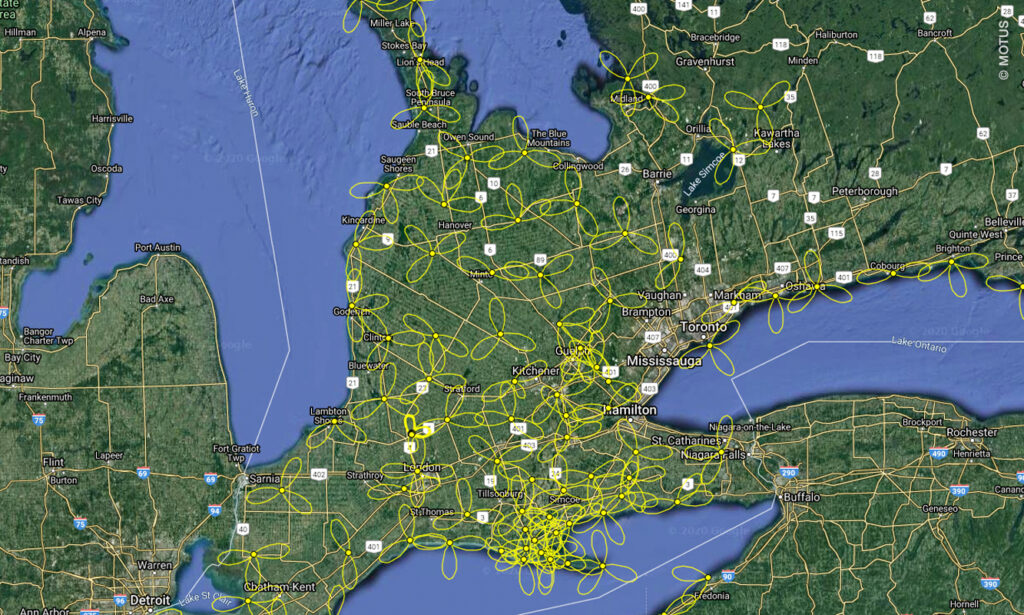Despite the fact that Northwest Mexico is used by more than a million migratory birds during the winter, there is a lack of information about their migratory patterns, dates of arrival and departure, survival, and habitat use. To generate this information in a continuous and economical way, Pronatura Noroeste and its partners will begin in 2020 to install the first network of “Motus” monitoring stations in Mexico. This network will use a set of antennas to record the migratory passage of birds tagged with a small transmitter. The signal from these transmitters will be automatically and continuously detected by the antennas which, installed in strategic points, will cover thousands of kilometers.
The Universidad Autónoma de Baja California Sur, University of South Carolina, Island Ecology and Conservation Group, and Terra Peninsular, among other organizations, participate in this project. The Motus network will be linked to its counterpart in the United States and Canada, completing a monitoring system of importance for migratory bird conservation on a continental scale.
If you are interested in the movement and migration of wildlife, and you belong to an institution or organization interested in hosting one of these stations to participate in this conservation effort, we invite you to an online conference “Expansion of the Motus network in Latin America: Tracking wildlife movements in a collaborative manner” on Friday, October 30th at 10:00 (Pacific time, UTC-7).
This session will discuss how to expand Motus coverage in Latin America, its use, challenges, and opportunities. In addition, you will learn about the equipment, transmissions, stations, and maintenance. Register at https://bit.ly/2GMGM0g or follow the live broadcast on our Facebook page.













